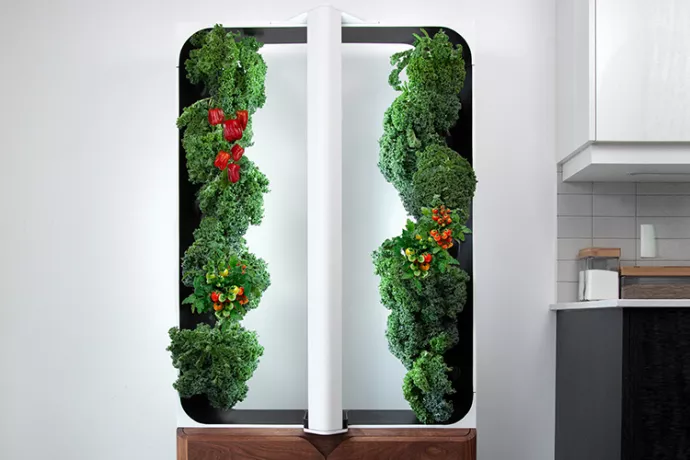
Bringing the farm right to the table
The idea for Just Vertical germinated in a classroom.
Co-founders Conner Tidd and Kevin Jakiela were master’s students at the University of Toronto, studying sustainability management, when they discovered they shared an interest—they were both fascinated with hyper-local, sustainable agriculture.
Tidd had just interned in corporate public affairs, experiencing first-hand the public’s mistrust of agri-business. “I told Kevin, ‘People in cities say they want to grow their own food, but they can't because they live in a concrete jungle,’” he recalls.
Jakiela, meanwhile, had worked in the Canadian Arctic, learning how to grow vegetables hydroponically in geodesic greenhouses. “And he said ‘you know what, the technology exists, but no one’s leveraged it properly in an urban setting.’”
The two teamed up, and started looking for a solution—a device that would allow just about anyone to grow vegetables indoors. “What we quickly discovered is that when you're putting something into somebody’s condo, they'd rather it look nice,” says Tidd.
So they designed a beautiful stand-alone wall unit—and at the same time perfected the technology of growing farm-fresh food just steps from the kitchen table. The real beauty is that the unit works just as well in a home in the Arctic as in an urban condo.
“Our bread and butter is the residential business, making urban farming possible for anybody,” says Tidd. “But the passion piece for us is the environment and food security.”
That passion also includes bringing the joy of gardening to people who desperately need it. “Older people are saying, ‘I used to garden all the time, it was my passion, but now I can't because I'm in a retirement home.’ Or, ‘my body doesn't allow me to bend over anymore,’” Tidd says. “Our system allows them to continue doing what they love.”
Today, Just Vertical is a viable company with strong international sales and growing revenue. But without U of T’s entrepreneurship network, Tidd and Jakiela’s idea might have stayed in the lab.
“We started working on it as a purely academic exercise,” says Tidd, “and then our course coordinator encouraged us to join our first incubator, the ICUBE at U of T Mississauga.” From there, they moved on to U of T’s Impact Centre, another entrepreneurial hub that works with startups in the natural sciences and engineering.
“They helped us plot out how we can turn our scientific know-how into a business,” says Tidd. “U of T took us and turned us from scientists into entrepreneurs.”
